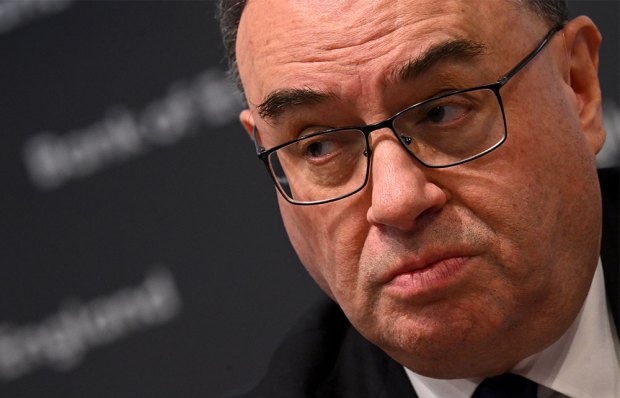This is getting serious. Never mind global shortages of microchips, plastics, copper and container ships; now we’re running out of pigs in blankets. The British Meat Processing Association says its members are so understaffed that annual production of 40 million packs of this popular pork item for the Christmas market is under threat. The British public have so far stoically accepted occasional empty supermarket shelves as a pandemic knock-on, to be blamed in part on necessary pinging of key workers and delivery drivers and in part on neighbours’ stockpiling, rather than on systemic government cock-up. But if the succulent sausage-in-bacon delicacy is nowhere to be found, trouble will surely follow.
I jest in the interest of asking a proper question: why won’t ministers listen to the Road Haulage Association, the National Farmers’ Union and the Food and Drink Federation when they ask for a short-term visa system that would allow EU and other foreign workers back into the UK to fill the skilled vacancies that are disrupting their sectors and holding back wider recovery? Business Secretary Kwasi Kwarteng bats the idea away, urging employers instead to take on some of the two million Britons who are still in the furlough scheme that ends this month and are likely to need new opportunities. As a long-term transition, that makes sense. But how many months will it take to qualify 100,000 former shop workers as HGV drivers; and how many former airline crew fancy a new career in an abattoir?
The truth behind ministers’ ‘line to take’ on this issue, I suspect, is that they’re under strict orders to say nothing that acknowledges how completely the government failed to plan for Brexit’s effects on the domestic labour market — or to foresee how that market would tighten as demand revived post-lockdown.
Now all they can do is hope the private sector will find its own solutions, as it usually does, despite government stupidity. As the investment minister Lord Grimstone added: ‘Business is very good at self-correcting.’
Veteran to watch
Gerry Grimstone hasn’t made many headlines since he joined the government, unpaid, last year, but must be the best-qualified minister in any department. A free–thinking former Treasury official, banker and boardroom veteran, he has recently argued un-fashionably in favour of foreign takeovers of UK companies on the basis that, surprising as it may seem, ‘all our research shows overseas invested companies are more productive and produce more jobs’.
Always worth hearing, he deserves a more senior post. But having served in Whitehall when Thatcher was in her pomp, we can only wonder what he thinks of the chancers round today’s cabinet table.
Bad blood
The trial of Elizabeth Holmes which opened in California on Tuesday is the culmination of a Silicon Valley saga that will be retold in a Hollywood film. It’s also a parable of greed and gullibility that echoes down the ages back to The Alchemist, Ben Jonson’s comedy about early 17th-century conmen claiming to turn base metal into gold.
Holmes is the founder of a biotech venture called Theranos that claimed to have developed a revolutionary blood-testing system which needed only a finger-prick to produce faster, more accurate results than conventional tests drawn by needle. The company achieved a $9 billion valuation while Holmes herself — as a female entrepreneur devoting her energies to healthcare rather than Silicon Valley’s usual obsessions with social media and gaming — became a rising tech star. Investors queued to back her with more than $700 million, Rupert Murdoch among them. Former secretaries of state Henry Kissinger and George Shultz joined her board. At Theranos’s zenith in 2015, Joe Biden visited the company and declared it ‘the laboratory of the future’.
But it wasn’t. A Securities and Exchange Commission action in 2018 alleged that Holmes and her team deceived investors by hyping the capabilities of their ‘Edison’ analyser device, which in fact ‘performed only approximately 12 of the over 200 tests on Theranos’s published patient testing menu’ — while ‘third-party commercially available analysers’ were used to cover the gaps. Remarkably, it was not ‘due diligence’ on the part of investors that brought this to light but a series of exposés in the Wall Street Journal. Now Holmes faces multiple fraud charges — and a possible 20-year sentence unless she plea-bargains or shifts blame to her partner Ramesh Balwani, who will be separately tried.
Meanwhile, the movie now in development is due to star Jennifer Lawrence as Holmes and to be titled Bad Blood. Its writers could take tips from Jonson, whose gulls in the alchemy scam included the greedy Sir Epicure Mammon and the pious Tribulation Wholesome — and whose plot twists included a convenient laboratory explosion.
Unsuitable
My recent observation of the collapse of City dress codes is reflected in news that Marks & Spencer no longer sells men’s suits in most of its large stores. The research firm Kantar says the number of suits sold in the UK has more than halved since 2017, while the value of the market has fallen from £469 million to just £159 million.
No wonder some outfitters are getting out: on my desk is a ‘closing down’ brochure from Samuel Windsor, a menswear brand that’s part of the Brecon-based multi-channel online retail group BVG. A further sign of changing consumer priorities is the fact that BVG is focusing instead on its portfolio of ‘garden lifestyle’ brands, offering everything from seeds to sheds. If you want to restock your wardrobe before traditional office attire disappears from shops and catalogues altogether, Windsor has slashed its last ‘summer suits’ to £49 and ‘dinner suits’ to £59. At that price you might as well wear them for digging the allotment.
Got something to add? Join the discussion and comment below.
Get 10 issues for just $10
Subscribe to The Spectator Australia today for the next 10 magazine issues, plus full online access, for just $10.
You might disagree with half of it, but you’ll enjoy reading all of it. Try your first month for free, then just $2 a week for the remainder of your first year.















Comments
Don't miss out
Join the conversation with other Spectator Australia readers. Subscribe to leave a comment.
SUBSCRIBEAlready a subscriber? Log in